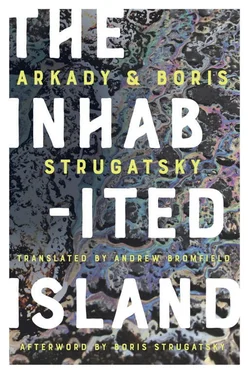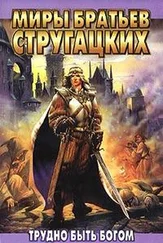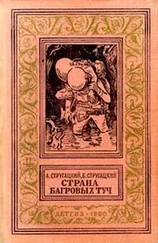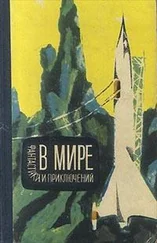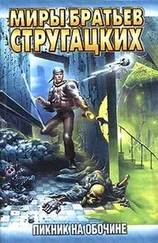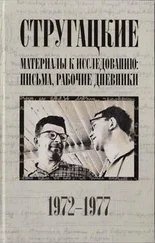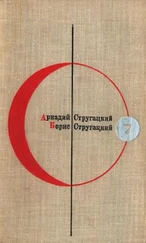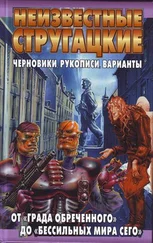Second, the general political context of that time. It was 1968, “the year of Czechoslovakia,” when the Czech Gorbachevs were desperately attempting to prove to the Soviet monsters that “socialism with a human face” was possible and even inevitable. At times it seemed that they were pulling it off, that at any moment the Stalinists would retreat and give way. No one knew what would happen in a month’s time—whether freedom would triumph, as in Prague, or whether everything would finally come full circle, back to remorseless ideological glaciation, perhaps even to the total triumph of the proponents of the GULAG.
With one accord the liberal intelligentsia expressed their opposition, all eagerly trying to convince each other (in their kitchens) that Dubček was certain to win, because it was impossible to strike down the ideological rebellion by force—that would be against the mood of the times, this wasn’t Hungary in 1956, and all these Brezhnev-Suslovs were too spineless, they didn’t have the good old Stalinist tempering, they didn’t have enough fire in their bellies, and the army these days wasn’t what it used to be. “Yes it is, our army’s still what it used to be,” the cleverest of us objected. “And their bellies have enough fire in them, don’t you worry. You can be sure the Brezhnev-Suslovs won’t flinch, and they’ll never give way to any Dubčeks, because it’s a matter of the Brezhnevs’ own survival.”
And there was deadly silence from those few individuals who generally could not be directly contacted, who already knew in May that the matter had been decided. And, of course, nothing was said by those who didn’t know anything for certain but sensed it, sensed it with their very skin: everything will be as it should be, everything will be the way it’s supposed to be, everything will be the way it always has been—the midlevel bosses, naturally including the junior officers of the ideological army, and the editors-in-chief of journals, the handlers of the Party’s regional committees and city committees, the staff of Glavlit… [2] TRANSLATOR’S NOTE: “Glavlit” is short for Glavnoe Upravlenie po Delam Literatury i Izdatelstv (the Central Directorate for Literary and Publishing Matters), the original name of the main Soviet censorship body. Though the organization was renamed several times, it was still commonly known as Glavlit.
The scales were wavering in the balance. No one wanted to make the final decisions; everyone was waiting to see which way the drawbar of history would turn. Those in positions of responsibility tried not to read any manuscripts at all, and when they did, they put forward mind-boggling demands to authors, and when those had been taken into account, they put forward others, even more mind-boggling.
In Neva they demanded that we: shorten it; take out words such as “homeland,” “patriot” and “fatherland”; it wasn’t permissible for Mak to have forgotten what Hitler was called; clarify the role of Wanderer; emphasize the presence of social inequality in the Land of the Fathers; replace the Galactic Security Commission with a different term, with different initials… [3] TRANSLATOR’S NOTE: In Russian, “Galactic Security Commission” is “ Komissiya Galakticheskoy Bezopasnosti ,” or KGB.
At Detgiz (to begin with) they demanded that we: shorten it; take out the naturalism in the description of war; clarify the role of Wanderer; obfuscate the social order of the Land of the Fathers; emphatically exclude the very concept of “Guards” (replace it, say, with “Legion”); emphatically alter the very concept of “Unknown Fathers”; remove terms such as “social democrats,” “communists,” etc.
However, as Vladimir Vysotsky sang in those years, “but that was just for starters.” The full implications were waiting for us up ahead.
In early 1969 the serial version of the novel appeared in Neva . Despite the general toughening up of the ideological climate as a consequence of the Czechoslovak “disgrace,” despite the sacred horror that had seized the obsequiously and fearfully trembling ideological bosses, despite the fact that at that precise moment several articles berating the Strugatsky brothers’ science fiction had all simultaneously drawn to a head and burst—despite all of this, we managed to publish the novel, and with only limited, in effect minimal, losses. This was a success. Indeed, you could say it was a victory that had seemed unlikely and that no one had expected.
At Detgiz things also seemed to be going well. In mid-May Arkady wrote that The Inhabited Island had been allowed through unscathed, without a single remark. The book had gone off to the printers. Furthermore, the production department had promised that, although the book was planned for the third quarter, a chink might possibly be found in order to bring it out in the second, i.e., in June or July.
However, the book did not appear in either June or July. Moreover, in early June an article entitled “Leaves and Roots” appeared in the journal Soviet Literature , renowned for its incisive, one might even say extreme, national-patriotic tendency. In this article our Inhabited Island was held up as an example of literature without any roots. At the time this part of the article seemed to me (and not only to me) to be “stupid and vacuous” and therefore in no way dangerous. Big deal, so they berate the authors because they let a null-transmitter overshadow the people, and because the novel doesn’t contain any genuine artistic images. What else is new? We had heard worse things than that about ourselves! Back then we were far more alarmed by a denunciation received at the same time by the Leningrad Regional Committee of the Communist Party of the Soviet Union from a certain true-believing candidate of sciences, [4] TRANSLATOR’S NOTE: The Russian degree of candidate is effectively equivalent to a doctorate.
physicist, and colonel all in one. With the directness of a military man and Party member, the physicist-colonel quite simply, without any fuzziness or equivocation, accused the authors of the novel published in Neva of mockery of the army, anti-patriotism, and other such barefaced anti-Soviet propaganda. It was suggested that measures be taken.
It is not possible to give a definite answer to the question of precisely which straw broke the camel’s back, but on June 13, 1969, the passage of the novel through Detgiz was halted by an instruction from on high, and the manuscript was confiscated from the printing house. The period of the Great Stand of the Detgiz version of The Inhabited Island began. [5] TRANSLATOR’S NOTE: A reference to Great Stand on the Ugra River, in which the forces of Ivan the Great faced off against the Great Horde of Akhmat Khan on opposite sides of the Ugra River from October to November 1480.
There is no point in listing all the rumors, or even the most plausible of them, that appeared at the time, migrated from mouth to mouth, and vanished into oblivion without a trace, not having received even the slightest solid substantiation. The correct interpretation of events was probably expressed by those commentators who judged that the quantity of scandals around the name of the brothers Strugatsky (six vituperative articles in the central press in six months) had finally made the transition to quality , and it had been decided by someone somewhere to turn the screws on the recalcitrant rebels and apply exemplary punishment. However, even this hypothesis, which explains rather well the opening and middlegame of the chess match that played out, in no way explains the relatively successful endgame.
After six months of frostbitten standoff, the manuscript suddenly reappeared in the authors’ field of view—directly from Glavlit, covered all over with multitudinous notes and accompanied by instructions, which in the appropriate fashion were immediately brought to our notice through the agency of the editor. It was difficult at the time and is now quite impossible to judge which precise instructions had issued from the inner depths of the censorship commission and which had been formulated by the management of the publishing house. On this point there were, and still are, differing views, and this mystery will never be solved now. In essence, the instructions for us to carry out boiled down to a requirement to remove from the novel as many as possible realities of Soviet life (ideally all of them, without exception) and, first and foremost, the Russian surnames of the characters.
Читать дальше
